I am working on building a query to track the life cycle of an user through the platform via events. The table EVENTS has 3 columns USER_ID, DATE_TIME and EVENT_NAME. Below is a snapshot of the table,
My query should return the below result (the first timestamp for the registered event followed by the immediate/next timestamp of the following log_in event and finally followed by the immediate/next timestamp of the final landing_page event),
Below is my query ,
WITH FIRST_STEP AS
(SELECT
USER_ID,
MIN(CASE WHEN EVENT_NAME = 'registered' THEN DATE_TIME ELSE NULL END) AS REGISTERED_TIMESTAMP
FROM EVENTS
GROUP BY 1
),
SECOND_STEP AS
(SELECT * FROM EVENTS
WHERE EVENT_NAME = 'log_in'
ORDER BY DATE_TIME
),
THIRD_STEP AS
(SELECT * FROM EVENTS
WHERE EVENT_NAME = 'landing_page'
ORDER BY DATE_TIME
)
SELECT
a.USER_ID,
a.REGISTERED_TIMESTAMP,
(SELECT
CASE WHEN b.DATE_TIME >= a.REGISTRATIONS_TIMESTAMP THEN b.DATE_TIME END AS LOG_IN_TIMESTAMP
FROM SECOND_STEP
LIMIT 1
),
(SELECT
CASE WHEN c.DATE_TIME >= LOG_IN_TIMESTAMP THEN c.DATE_TIME END AS LANDING_PAGE_TIMESTAMP
FROM THIRD_STEP
LIMIT 1
)
FROM FIRST_STEP AS a
LEFT JOIN SECOND_STEP AS b ON a.USER_ID = b.USER_ID
LEFT JOIN THIRD_STEP AS c ON b.USER_ID = c.USER_ID;
Unfortunately I am getting the "SQL compilation error: Unsupported subquery type cannot be evaluated" error when I try to run the query

